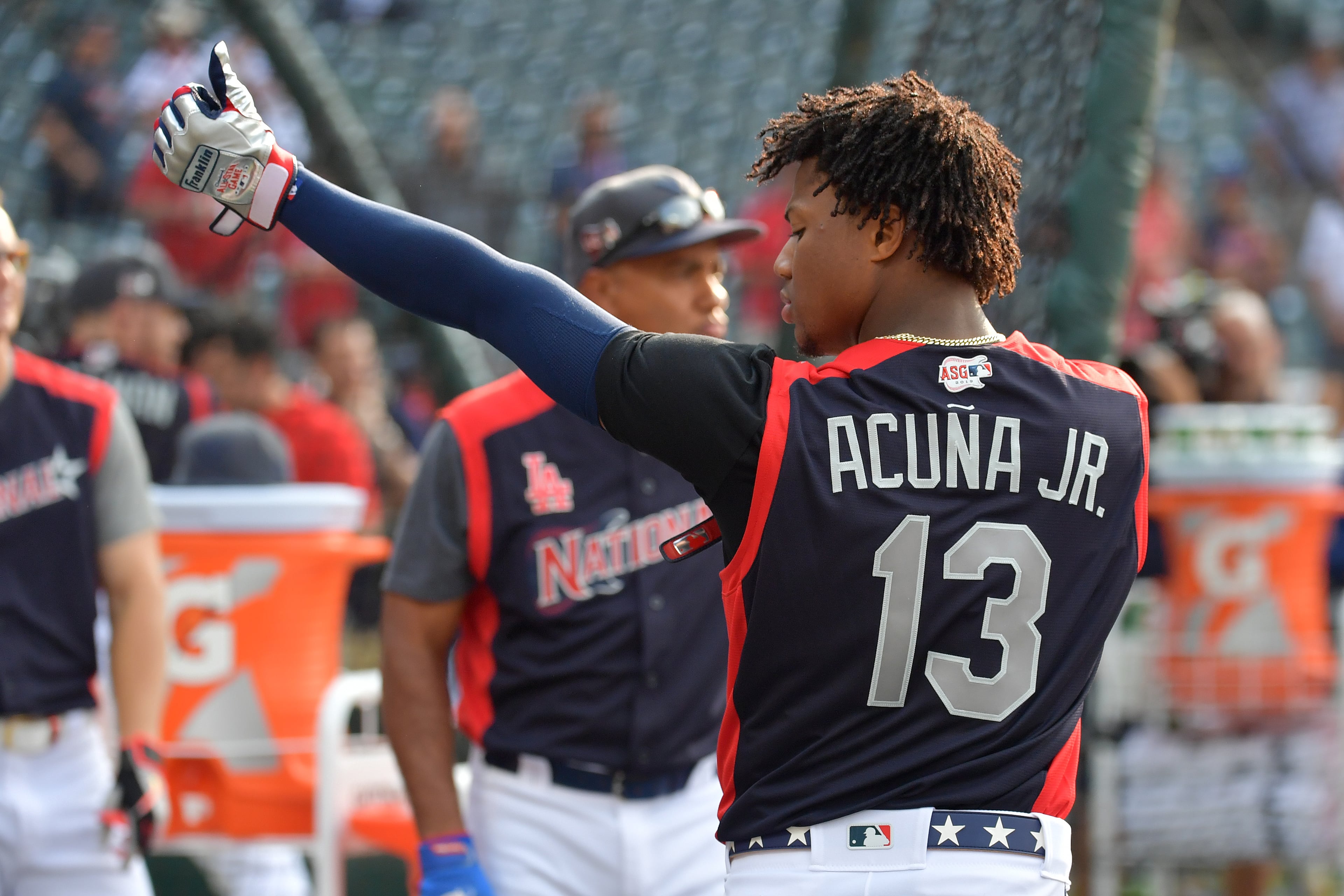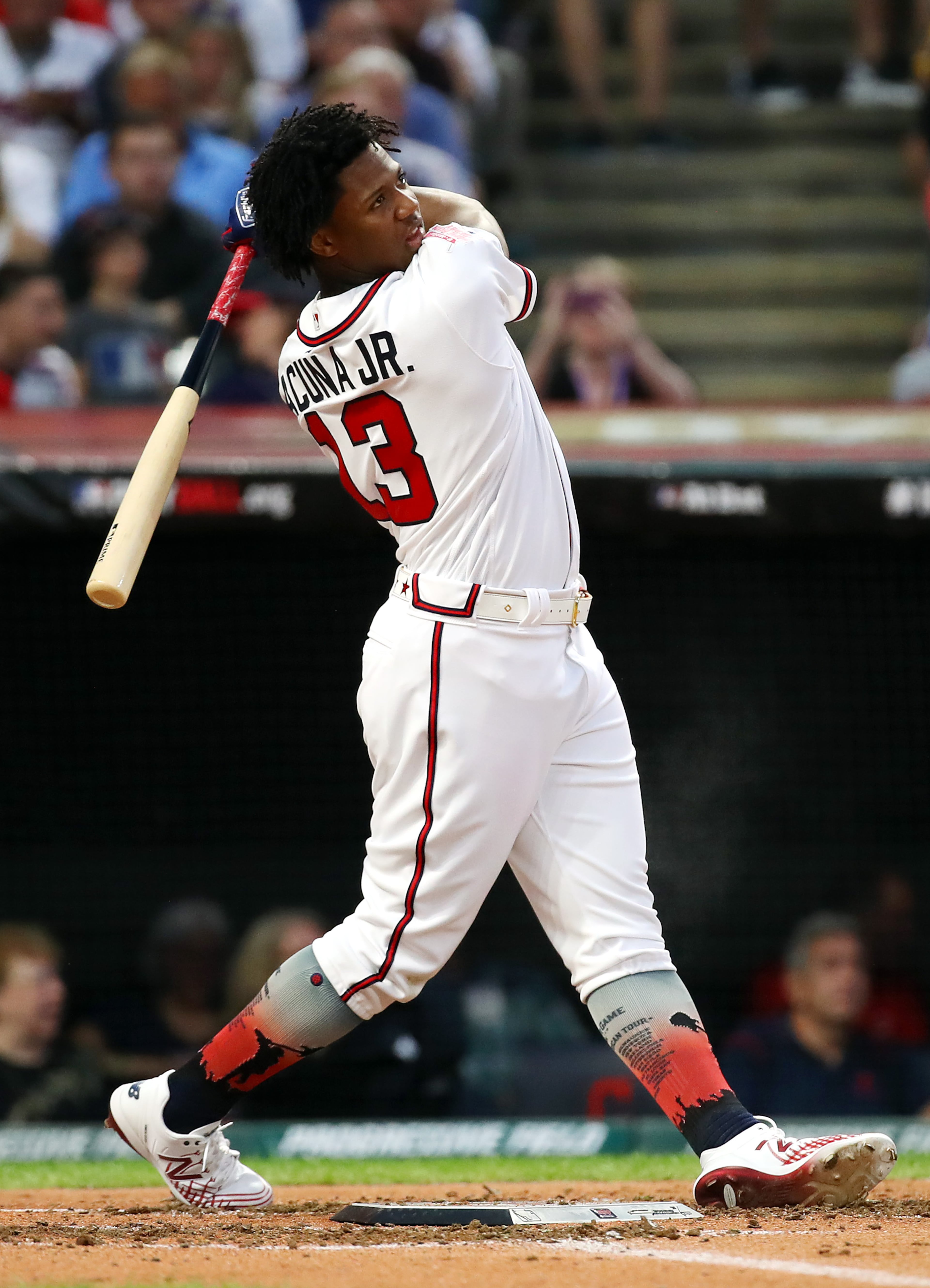What ‘juiced’ baseballs mean for the Braves










Braves All-Star slugger Ronald Acuna made it to the semifinals of the Home Run Derby on Monday night while showing off his smooth swing and opposite-field power. I wanted to see Acuna win the $1 million prize to supplement his below-market salary. At least he had a good showing and appeared to enjoy himself.
.@ronaldacunajr24 made this look easy. @Tmobile #HRDerby pic.twitter.com/AfuTMQRvik
— MLB (@MLB) July 9, 2019
The way baseballs jumped off bats in the contrived exhibition looked like what we’ve seen in the real games. Major league players are on pace to hit more home runs than ever this season. They hit 3,691 home runs before the All-Star break and are on pace to club 6,668 homers and sail pass the record of 6,105 dingers in 2017.
Hours before the Home Run Derby, Astros All-Star pitcher Justin Verlander accused MLB of juicing baseballs at the direction of commissioner Rob Manfred.
“Major League Baseball’s turning this game into a joke,” Verlander told ESPN. “They own Rawlings, and you’ve got Manfred up here saying it might be the way they center the (core). ... Manfred the first time he came in, what’d he say? He said we want more offense. All of a sudden he comes in, the balls are juiced? It’s not coincidence. We’re not idiots.”
I hope the balls are being juiced. Home runs are fun to see, and I’m OK with lots of strikeouts to that end. The Braves have done their part with 143 home runs this season, seventh-most in the majors and third-most in the NL.
The Braves are drawing big at SunTrust Park lately because they are good. It also doesn’t hurt that there’s a good chance of seeing lots of homers hit by the home team, including dramatic shots in later innings. Live balls are benefiting the Braves this season and could for years to come if the trend continues.
Acuna is one of five core Braves hitters who can slug. Freddie Freeman has been doing it for a long time. Dansby Swanson has discovered a power stroke this season. Ozzie Albies has good pop, and Austin Riley has hit 16 homers in 49 games since being called up.
But the league-wide homer binge could be detrimental to the Braves in the bigger picture. They’ve built their organizational talent with pitchers. The Frank Wren/John Hart/John Coppolella regime selected 11 pitchers in the first round of drafts from 2008-17. Current general manager Alex Anthopoulos took a pitcher with his first pick in the 2018 draft before choosing a catcher and shortstop this year.
Of course, good pitching can counter all those home run hitters. It needs to be the right kind of pitching, though. Batters are hitting the ball in the air more often and harder, so pitchers who induce a lot of swing and misses and ground balls tend to avoid home runs. The young Braves pitchers who made it to the majors and are still around are mixed on those measures.
Among the starters, All-Star Mike Soroka induces ground balls at a rate well above the MLB average for all pitchers, but is a bit below par at getting swings and misses. Max Fried gets lots of ground balls with an above-average strikeout rate. Bryse Wilson has a low ground-ball rate, but an above-average swinging strike percentage.
In the bullpen, A.J. Minter and Chad Sobotka are high-strikeout, low ground-ball guys. Sean Newcomb has been average at both, though his strikeout rate has declined this season. Touki Toussaint is above average at inducing ground balls and strikeouts.
Those pitchers are early in their MLB careers, but the rates for ground balls and strikeouts become meaningful with relatively small samples. It helps to limit walks so home runs aren’t so damaging, and that’s been a big issue for young Braves pitchers. Soroka’s walk percentage is excellent while every other pitcher has been below-average. Wright, Wilson, Toussaint, Sobotka and Newcomb all issue walks at rates that are at least one-third higher than the MLB average.
Those pitchers will have to figure out how to navigate MLB’s surge in home runs. Even if the ball isn’t juiced they’ll still have to contend with batters focused on hitting the ball hard in the air without regard to striking out. Verlander has been a good MLB pitcher for a long time and even he’s having a hard time adjusting.
The context of Verlander’s quotes about juiced balls includes the majors-leading 26 home runs he’s allowed this season. He conceded to ESPN that he’s thinking about his legacy. But Verlander’s comments aren’t completely self-interested because he long has had high rates of swinging strikes and strikeouts, which make him less susceptible to allowing homers.
And Verlander is right about the suspicious timing of MLB buying Rawlings. It happened right after a league-commissioned study concluded the homer spike was because of “reduced drag on the baseballs, leading to better carry.” That investigation found no changes in the baseball. It contradicted previous independent studies that showed bouncier baseballs with lower seams contributed to the homer spike since the 2015 All-Star break.
The live ball is good for the 2019 Braves. They have young hitters who can bash baseballs over fences, including Acuna. It may not be so good for their pipeline of fresh pitchers.

